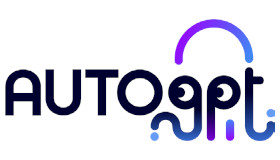Case study: AutoGPT
State of Open: The UK in 2024
Phase Four “AI Openness: End of Year Update 2024”

Toran Bruce Richards, Founder
AutoGPT is a UK-based organisation in Edinburgh, founded by [26 year old] Toran Bruce Richards, revolutionising the artificial intelligence (AI) landscape with its focus on agentic AI. Since its creation in July 2023, the company has grown to include eight full time employees and seven part time contractors, spread across Europe, Asia, and America. As a fully remote team, AutoGPT epitomises a globally distributed, open-source-driven enterprise committed to driving innovation.
Revolutionising AI with Agentic Systems
Agentic AI, the focus of AutoGPT’s work, empowers AI systems to operate independently and perform multi-step tasks without constant user input, i.e. with a degree of autonomy. While agentic AI is quickly emerging as an area of interest, few organisations have managed to translate it into practical, scalable systems.
The creation of AutoGPT in 2023 marked the debut of ‘agency’ in large language models (LLMs). This set the organisation apart as an industry pioneer. This has made it an indispensable tool for users worldwide.
In September 2024, AutoGPT released the AutoGPT Platform. One example of the Platform’s potential is to generate content which will improve a sales process, by speeding up the process, but also by analysing complex information to convert written conversation to video and by enabling greater personalisation of sales content. It does this through a number of elements including data processing and analysis, task scheduling and management, communication and notification systems, integration between different software tools, AI-powered decision making and content generation.
The majority of the project continues to be shared under an OSI-approved open source license, the MIT license. AutoGPT’s open source licensing has driven its success, evidenced by its unprecedented 169,000 plus GitHub stars and recognition as one of the top 25 global GitHub projects.
The new autogpt_platform folder has been released by AutoGPT, on the ‘Polyform Shield license’, which is a standard form proprietary licence. This licence is largely open but does not qualify as open source as the licence is not open source and contains a restriction. It allows for new works to be made by all users with a carve out from that, being the condition that no user will not compete with the underlying distribution. This enables many other activities that do not compete to be carried out freely and commercialisation of those. Effectively this new licence choice enables the company to utilise an ‘open core’ model to monetise the AutoGPT Platform whilst granting relatively wide rights in it and keeps the ‘core’ AutoGPT, truly open source.
AutoGPT’s adherence to open source values of community and collaboration is one of the key differentiators for AutoGPT. By centering the needs of their community and users, they have been able to offer not only the best tools but also those tailored to individual preferences. This inclusive, user-centric approach has, and will continue to, set AutoGPT apart from larger corporate players who prioritise shareholder interests over user needs.
Open Source Philosophy
From its creation, AutoGPT’s commitment to open source has been key to its founder and the organisation.
By making its innovations publicly accessible, the company ensures that advanced AI technology benefits a broad community rather than a select few thereby democratising AI. This ethos has fostered widespread interest in agentic AI, drawing the attention of major tech giants like Google, OpenAI, and Meta to this revolutionary technology.
Open source accelerates innovation as AutoGPT’s founder explains, “building in public allows us to benefit from constant instant feedback. We constantly share our work to the scrutiny of the world far before it’s finished, which means we benefit from much earlier feedback than any other working model can hope to achieve.” By publicly sharing every stage of development, AutoGPT has cultivated a dynamic ecosystem where contributors worldwide refine and expand the technology.
This transparent approach has enabled the company to iterate quickly and avoid the pitfalls of closed door development cycles. Its transparency also fosters trust in AutoGPT’s AI agents, as users can scrutinise and build upon widely shared tools, ensuring reliability and community confidence and are not reliant on the company or locked-in to it.
Navigating Challenges & Regulations
Operating in the UK, AutoGPT has faced regulatory hurdles that restrict access to certain cutting-edge AI technologies that are available in other regions like the US.
These limitations, stemming from stringent policies, pose challenges to maintaining a competitive edge against international counterparts. Despite these challenges, AutoGPT has remained committed to its UK roots and remained a UK company, leveraging international funding opportunities and building a globally distributed team to mitigate geographical constraints.
This approach underscores its resilience and adaptability in a rapidly evolving industry and sets it aside as a leading UK AI company with massive international impact despite its diminutive size.
Future Prospects and Vision
AutoGPT’s vision extends beyond individual agentic AI solutions to the development of massive multi-agent systems.
By enabling hundreds of specialised AI agents to collaborate seamlessly with each other without human intervention, the company aims to unlock unprecedented possibilities in solving complex problems.
The forthcoming agent marketplace from AutoGPT, will serve as a hub for innovation, where developers can build on others’ creations, fostering a culture of collaboration and ingenuity, in the true open source spirit.
By empowering creators to monetise their agents, AutoGPT is shaping a new economic dynamic in AI, one centred on community driven task fulfilment. This approach ensures that the best tools – and the tools best suited to individual needs – are readily available, advancing not just technology but also its accessibility and usability.
Conclusion
AutoGPT’s groundbreaking work exemplifies the transformative potential of open source in the world of AI. By prioritising their community and users, and fostering trust through transparency, the company has not only advanced the capabilities of AI but also reshaped the broader landscape of AI development. As it navigates regulatory challenges and scales its ambitions, AutoGPT remains at the forefront of an open, collaborative future for AI. It is one of the best examples globally of open source meeting AI and for the UK an exemplar of the UK’s leading position in open source and ground-breaking AI innovation.
First published by OpenUK in 2024 as part of State of Open: The UK in 2024 Phase Four “AI Openness: End of Year Update 2024”
© OpenUK 2024 ![]()
